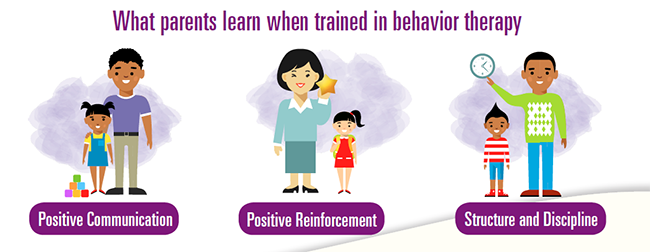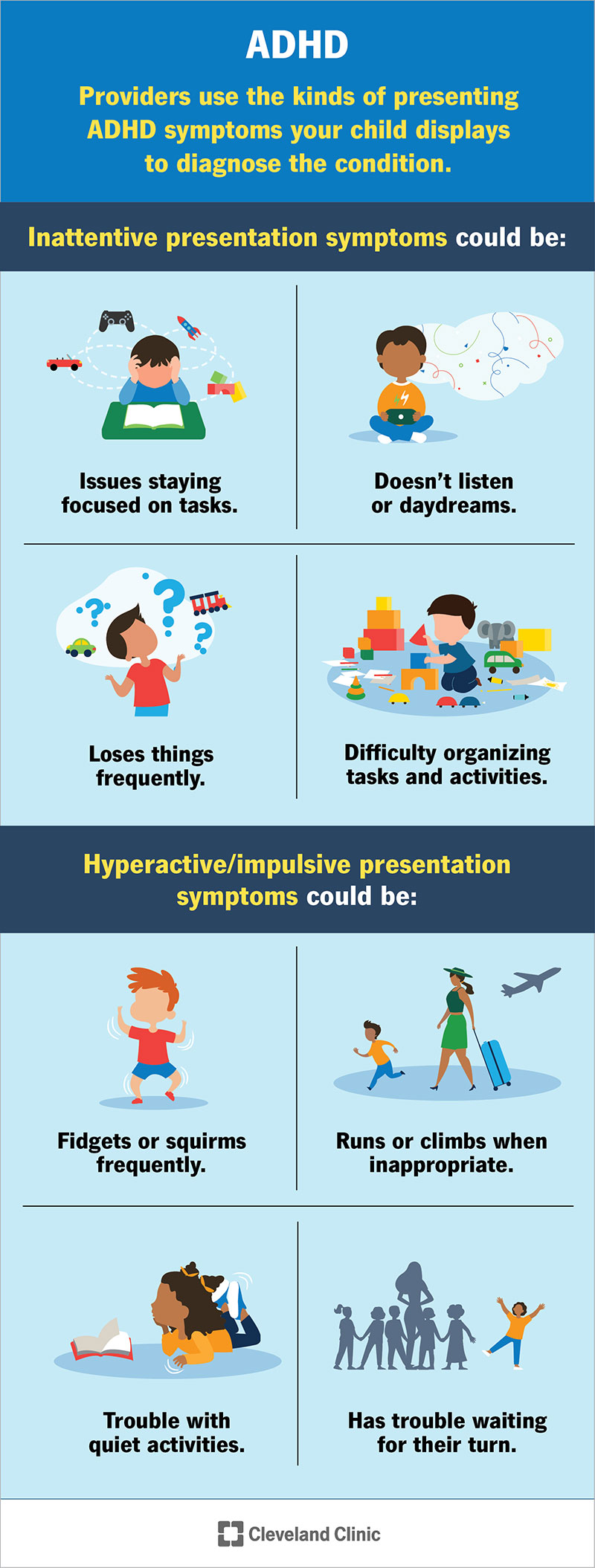The Benefits of Tailored ADHD Therapy Prepare For Better End Results
The implementation of tailored ADHD treatment plans has become a crucial approach in improving therapeutic outcomes for individuals impacted by this problem. By recognizing the special indications of ADHD in everyone, these customized interventions promote higher involvement and inspiration, inevitably resulting in extra reliable coping strategies. This tailored method not only addresses academic and work-related difficulties yet also promotes enhanced social partnerships and total top quality of life. The real extent of these benefits elevates vital inquiries concerning the details parts that contribute to long-lasting success and how they can be optimized for diverse populaces.
Recognizing ADHD Variability
Although Attention-Deficit/Hyperactivity Condition (ADHD) is usually perceived as a particular problem, its manifestations can vary dramatically among people. Sex distinctions also play a function, as men are more frequently identified with ADHD and often show extra overt symptoms, whereas females might offer with less obvious inattentiveness.
Furthermore, individuals with ADHD might experience a range of emotional and behavioral obstacles, such as anxiousness or opposite defiance, that can complicate diagnosis and treatment. It is also worth keeping in mind that ADHD can offer in different ways throughout various cultural contexts, affecting exactly how signs are acknowledged and dealt with.
Key Components of Customization
Customized ADHD treatment plans are based in a number of essential parts that make certain reliable administration of the disorder. Initially, a thorough evaluation is important, involving standardized score scales, meetings, and behavioral monitorings. This detailed assessment permits clinicians to recognize the person's unique signs, strengths, and obstacles.
Second, the participation of multiple stakeholders, consisting of parents, teachers, and the person, adds to an alternative view of the individual's needs. Cooperation fosters a supportive atmosphere that can adapt to the person's context and lifestyle.
Third, therapy strategies need to be adaptable and adaptable, allowing for alterations based upon recurring feedback and the individual's progressing needs. This versatility makes it possible for the combination of numerous therapeutic methods, such as behavior treatments, psychoeducation, and medication management.
In addition, social and contextual factors need to be considered. Acknowledging the individual's history, worths, and preferences makes sure that the treatment is relevant and respectful.
Lastly, regular follow-ups and evaluations are important to monitor progress and make required modifications. By concentrating on these key components, personalized ADHD treatment plans can substantially improve the performance of treatments, causing boosted end results for people with ADHD.
Boosted Engagement and Inspiration
To successfully promote improved engagement and motivation in people with ADHD, it is important to integrate methods that resonate with their rate of interests and staminas. Personalized treatment strategies that straighten with a person's interests can cause raised involvement in restorative activities, cultivating a feeling of ownership and interest for the process.
Making use of interactive and innovative methods can also considerably enhance inspiration. For instance, integrating gamification elements or real-world applications of abilities can make jobs much more enticing and pertinent. This not just catches attention yet likewise strengthens learning via satisfying experiences.
Furthermore, establishing attainable and meaningful objectives tailored to the individual can strengthen inspiration. When people see their progress in the direction of personally significant purposes, they are most likely to remain engaged. Normal feedback and acknowledgment of achievements can better suffer inspiration, creating a positive responses loop that urges ongoing effort.
Last but not least, promoting a supportive atmosphere where people feel comprehended and valued can substantially influence their interaction levels. When therapy plans are established collaboratively, including input from the individual, they are a lot more likely to really feel invested in their journey, inevitably bring about improved results in taking care of ADHD.
Improved Coping Strategies
Establishing boosted coping methods is important for people browse this site with ADHD, as it furnishes them with effective tools to browse daily challenges. A personalized treatment strategy enables for the recognition of particular coping mechanisms customized to the person's distinct demands and circumstances - ADHD treatment. Techniques such as mindfulness, time administration abilities, and business techniques can be incorporated right into everyday routines, fostering a sense of control and minimizing anxiety
Mindfulness practices, including meditation and deep-breathing workouts, help people with ADHD focus their attention and regulate their emotions. Time administration approaches, such as making use of timers or breaking tasks into smaller, workable steps, can mitigate feelings of overwhelm. Additionally, business devices like coordinators check this site out and checklists can enhance efficiency and liability.
Long-term Positive End Results
Carrying out individualized ADHD treatment strategies can lead to significant lasting favorable results for individuals. These customized strategies, which take into consideration special symptoms, preferences, and life conditions, assist in much more reliable administration of ADHD symptoms with time. By concentrating on the specific demands of the individual, these strategies improve adherence to treatment methods and foster higher engagement in healing activities.

Furthermore, customized treatment strategies can dramatically lower the threat of comorbid conditions, such as anxiety and depression, which are typically related to ADHD. Early intervention and consistent support assistance learn this here now people develop resilience and coping strategies, advertising general mental wellness.
Ultimately, the long-term favorable results of individualized ADHD treatment plans not just improve the high quality of life for individuals yet also add to their general health and success in different life domains. This all natural approach highlights the relevance of individualized care in handling ADHD properly.
Conclusion
